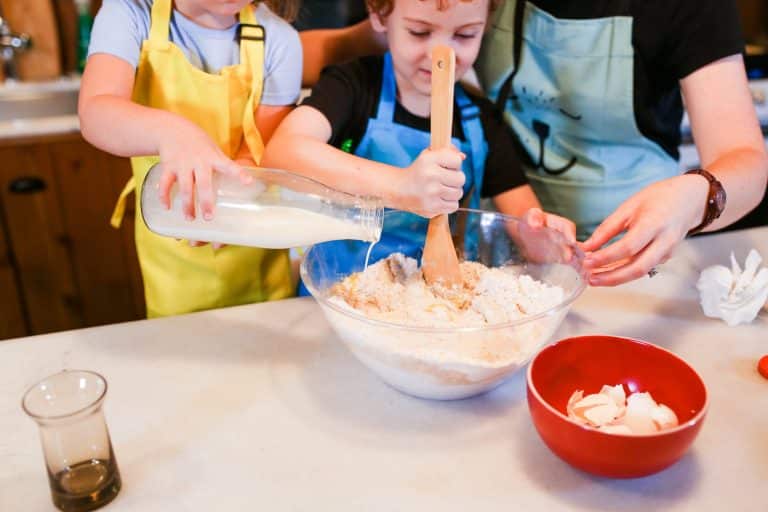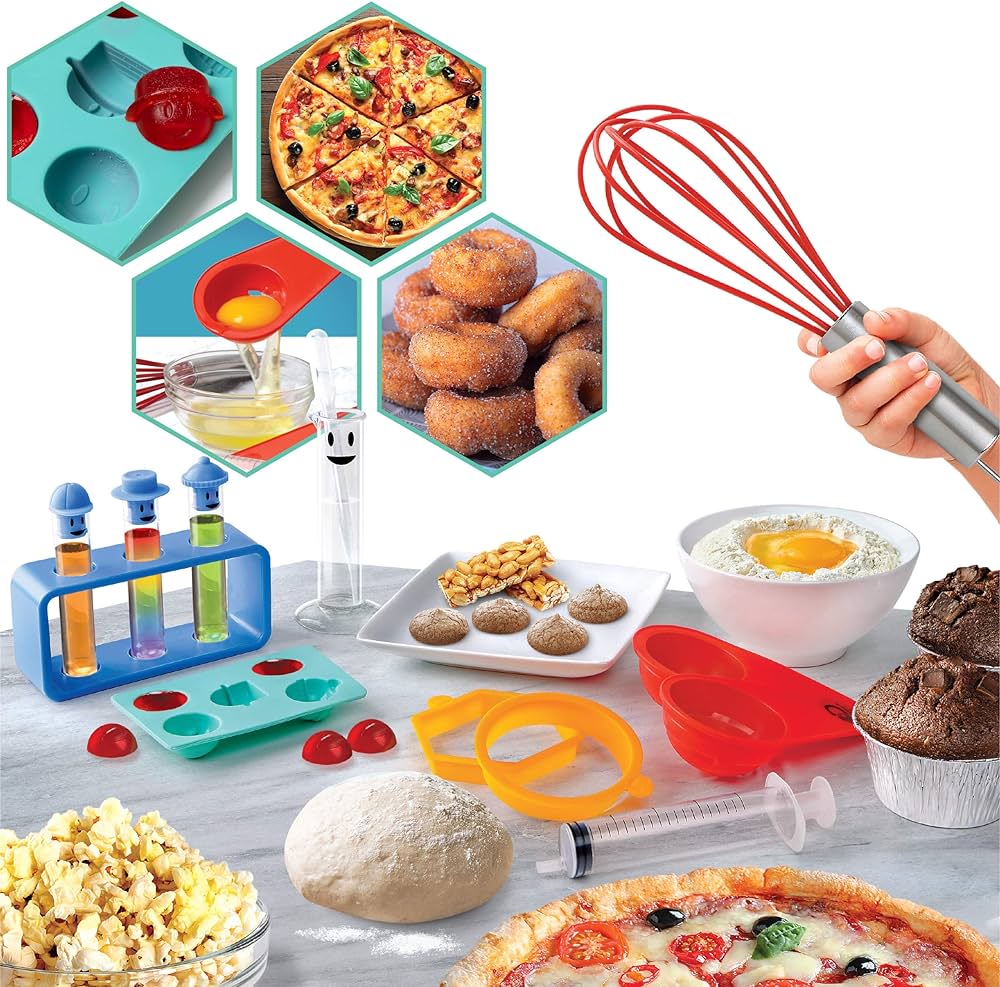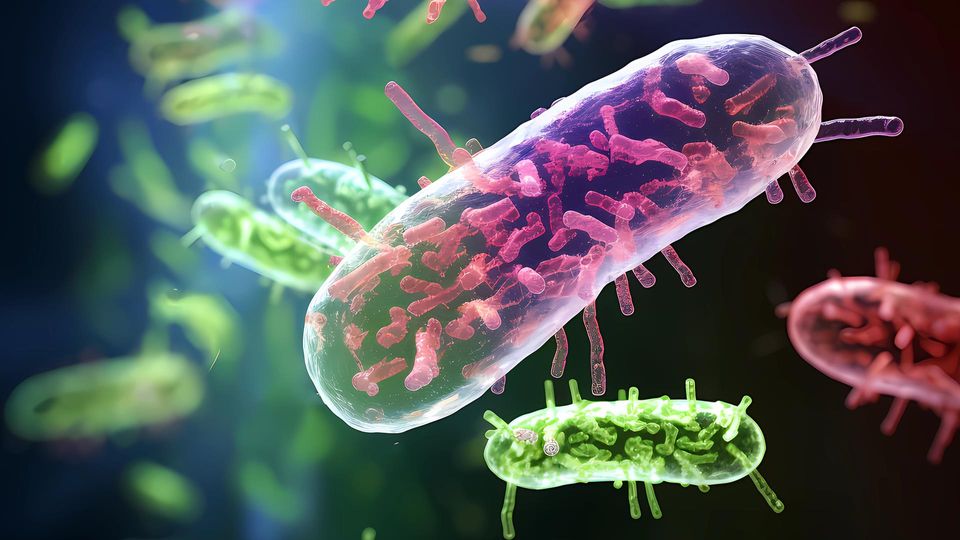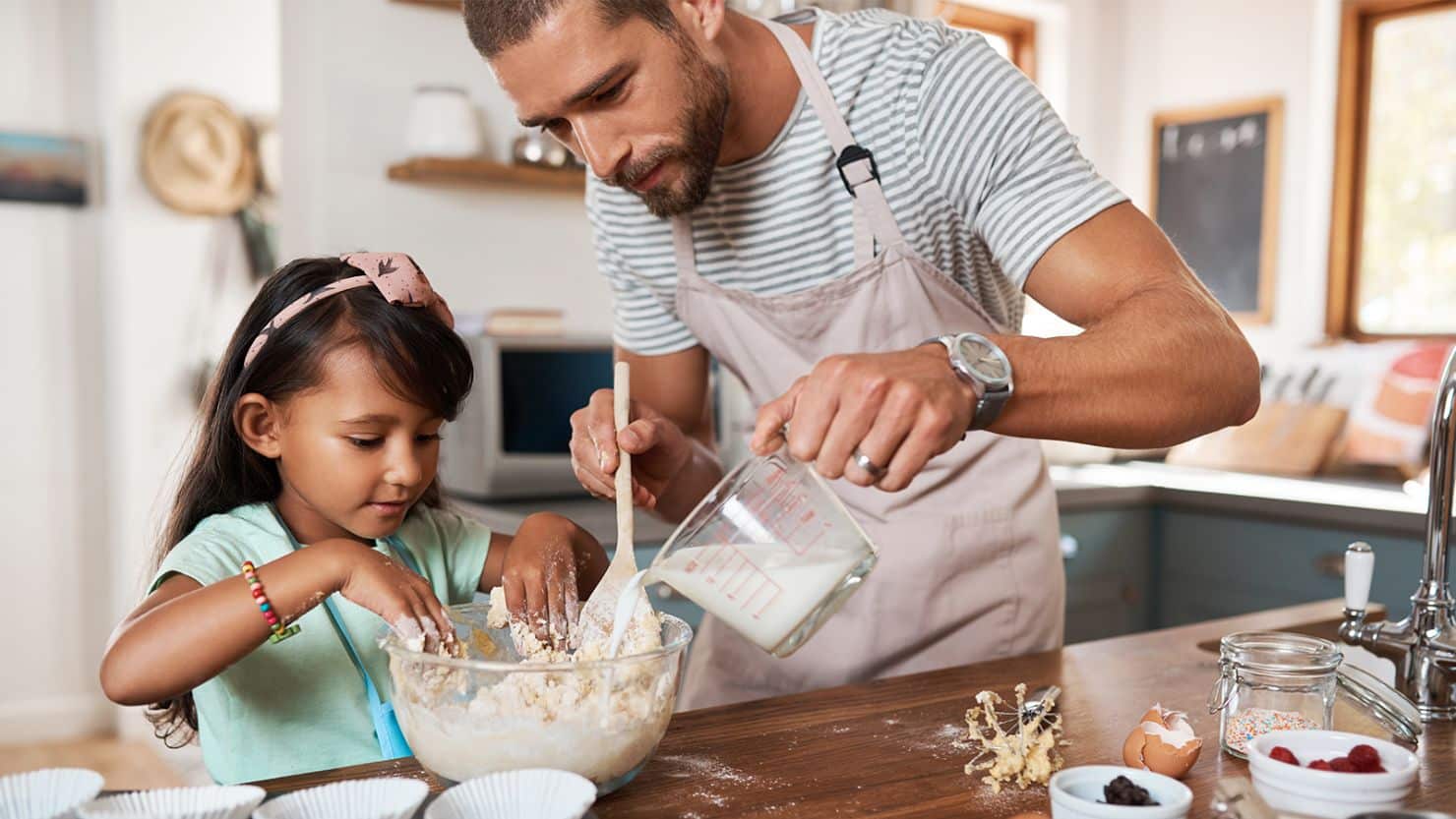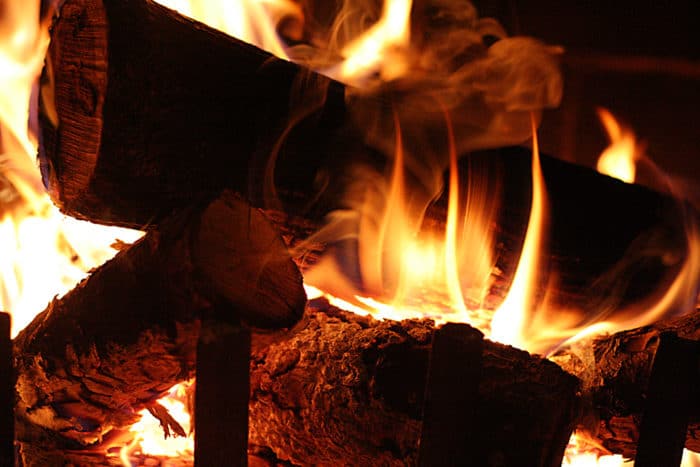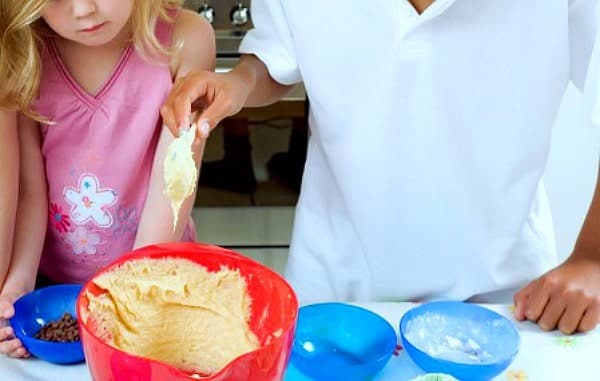Baking is an art and is more than just mixing up the ingredients and following a recipe.
But baking as an activity is often lost on kids simply because they would rather play than bake in the kitchen.
Is there a way to teach kids science through baking? And the answer is yes.
Baking is an excellent way to introduce science to kids and make them intrigued about science.
So how can you start, and what can you teach your kid through baking? Let’s find out in this article.
This article will explore the science behind rising dough, the chemistry of ingredients, and the science of heat.
Let’s get started!
1. Science of Ingredients
Before going deep into the baking process, we need to be clear about certain basic ingredients that are the backbone of the whole baking process.
- Flour: It has proteins and gluten and is powdery unless mixed with water to create a dough. You can teach your kids that when the flour is mixed with water, gluten in the flour traps the carbon dioxide, turning it into a dough.
- Baking powder and baking soda: They actively release carbon dioxide gas. Baking soda requires an acid, such as yogurt or buttermilk, to activate, while a combination of acid and heat activates baking powder. This chemical reaction makes your cookies and cakes fluffy and crunchy, having that light and fluffy texture.
- Sugar: It isn’t just for sweetness; it plays a crucial role in baking by tenderizing and moisturizing the final product. When the sugar interacts with the fats, it affects your baked goods’ texture, flavor, and color.
2. Different Micro-organisms
There are several microorganisms responsible for baking at a very microscopic level. Knowing about them and teaching this to your kid is surely a way of teaching them the importance of microorganisms.
Yeast is a tiny organism and plays a very crucial role in the world of baking.
When yeast is combined with sugar and warm liquid, it ferments, producing carbon dioxide and alcohol.
This process is known as fermentation. Fermentation causes the dough to rise, creating airy and light bread.
Involving your kids in this stage of baking is not only educational but also fun.
Watching the dough double in size as the yeast works magic provides a tangible lesson in biology.
You should explain how yeast is a living organism and contributes to the final product’s texture and flavor.
3. Mixing Up the Ingredients
After your kids learn about different products and ingredients, mix these things up and start baking.
As your kids start the mixing process, they will learn the science of emulsification. Emulsification is blending two immiscible liquids (cannot be mixed well homogenously), like oil and water, into a smooth, uniform mixture.
For instance, eggs act as natural emulsifiers in many baked goods with their dual water and fat content nature.
You can encourage kids to observe the transformation as they mix oil, eggs, and other liquid ingredients.
This hands-on experience for your kids teaches them about the science of emulsification and gives them a life lesson of proper mixing to make the finest batter.
And when you start cooking together, you can also crack some pizza jokes for kids; check them out here to showcase your humor to your kids.
4. The Physics of Heat
Heat is involved in all types of food preparation, including baking, frying, cooking, boiling etc. When it comes to baking, proper application of heat becomes more important. As you might know, heat involves the principles of conduction, convection, and radiation.
Invite your kids to learn more about conduction. Tell them how conduction is the transfer of heat through direct contact. It is the sole reason cookies spread and rise in the oven.
Meanwhile, convection occurs as hot air circulates, ensuring even baking. Radiation is the transfer of heat through electromagnetic waves. It is responsible for the golden brown crust on your bread or pastries.
5. Creativity and Exploration
Beyond teaching science to kids, baking also explores your creative and artistic side.
It would be best to encourage them to experiment with different ingredients, flavors, and textures.
Start asking questions that spark curiosity: What happens if we add chocolate chips? How does the texture change with more or less sugar?
When they start finding the answer to your question, they will figure out their process and enhance their baking skills further.
It would be best to remember that creating a positive and experimental environment in the kitchen is important as it helps the kid to think critically and develop problem-solving skills.
It also gives them a sense of pride as they taste their handmade dish.
Conclusion
Baking with the kids goes way beyond just making tasty treats. Rather, it can be turned into a holistic learning experience where you can teach your kids science, creativity, and teamwork.
From understanding the chemistry behind ingredients to the functions of different microorganisms, the kitchen can surely become a good place to teach your kids the basics of science.
In the moments of learning, don’t forget to savor the shared laughter that comes with the joy of creating something delicious together.
Remember that while baking together, you are not just baking cookies or cakes but also inculcating a love for science in them.
Frequently Asked Questions
Why is Cooking and Baking Good for Kids?
Cooking and baking with kids is beneficial as it promotes hands-on learning, enhances math and science skills, and encourages them to be more creative daily. Moreover, it helps build teamwork, increases their confidence, and instills a love for wholesome, homemade food, contributing to their overall development.
When Can Kids Start Baking?
Children between the ages of 6 and 8 are at a stage where they are beginning to read and acquire basic math skills. You can empower them by allowing them to create their recipe during this time. Just provide them with essential baking ingredients, and be present to supervise and assist if they need your help in creating their favorite snack.

